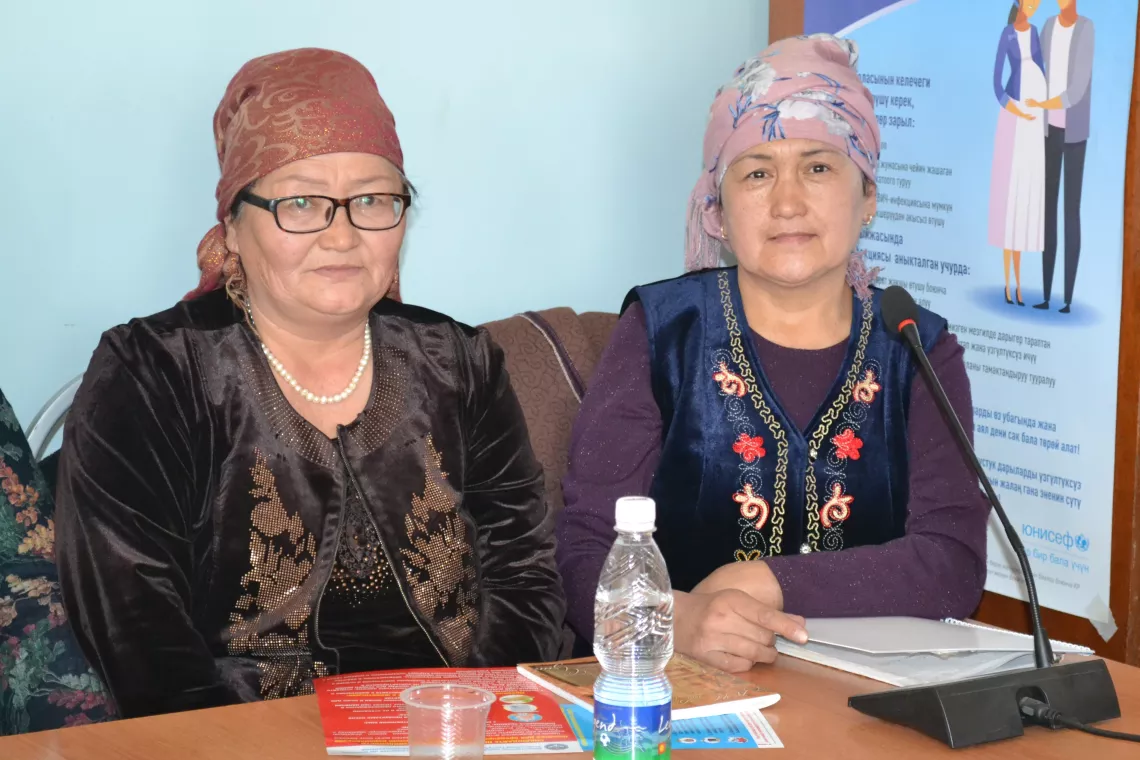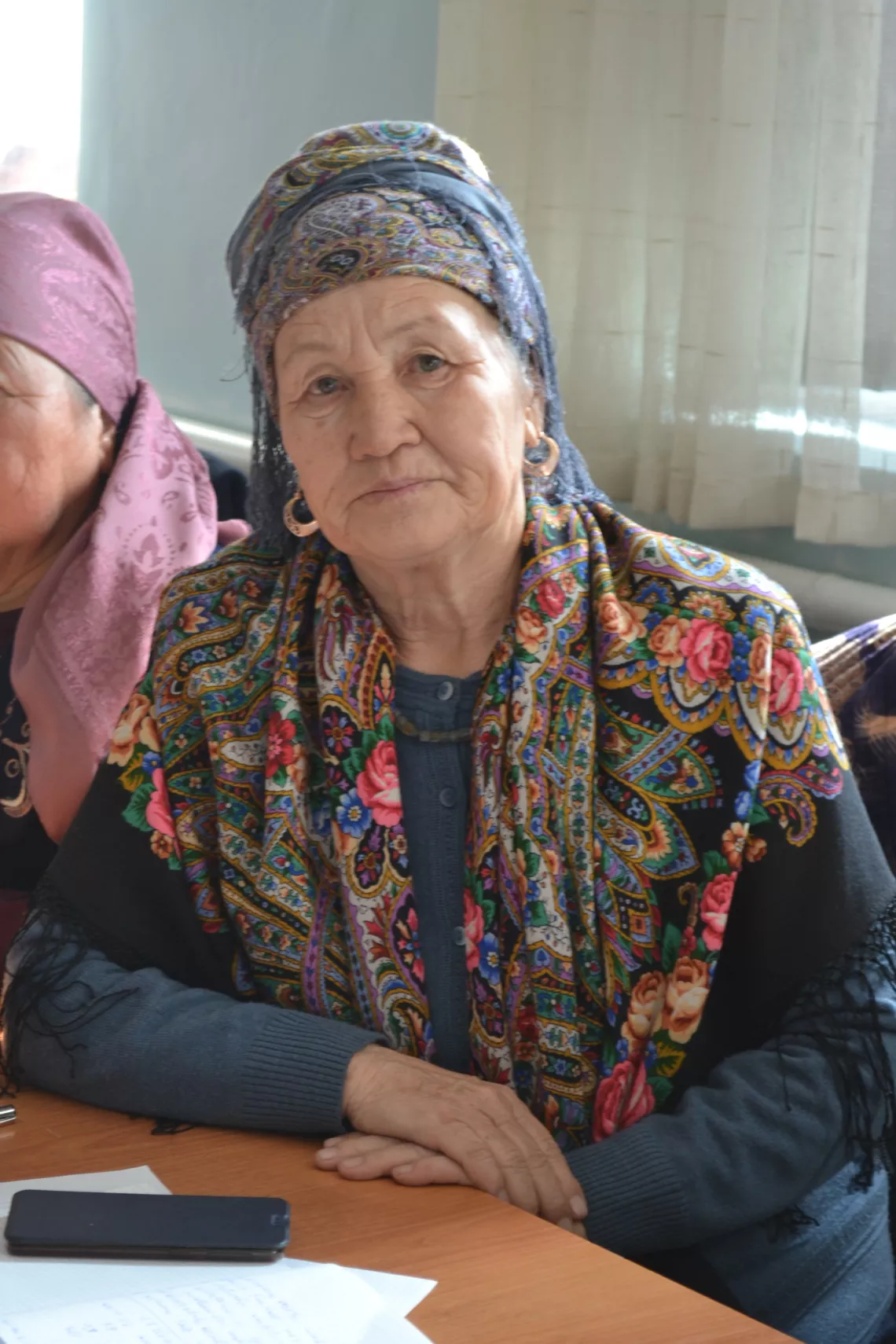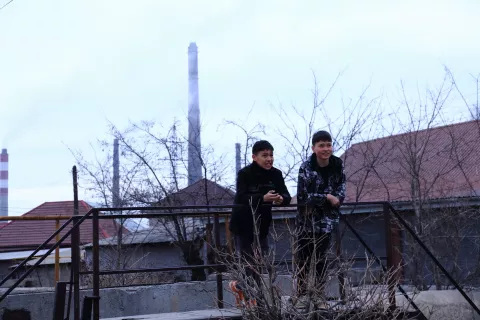Local communities are working together to stop the spread of HIV in Kyrgyzstan
Supported by UNAIDS and UNICEF, the Village Health Committees (VHC) work throughout the country to support doctors in delivering key messages about HIV prevention.
In Kyrgyzstan, there is currently an increase of HIV infections through sexual intercourse, but ongoing projects at community level are working to curb these numbers. Supported by UNAIDS and UNICEF, the Village Health Committees (VHC) work throughout the country to support doctors in delivering key messages about HIV prevention.
VHC members are predominantly women, many of them retired, who have committed to make changes in their communities by informing their communities about the risks and prevention of HIV on a voluntary basis. On average, there are around 10 VHC volunteers per village. They go to schools and take part in public events to share information on HIV and ensure that as many people as possible are reached with factual information to address myths and misconceptions.

The heads of all VHC were trained to prevent HIV infection and stop the stigma. Kimsan Koldosheva, a 70-year-old woman from Kulatov village in the south of the country, participated in her community training, receiving a really positive reception. With the experience of almost 40 years in the public sector, Kimsan is one of the leading VHC members both in her village and district. “We contribute to improving people’s lives and health. This is our main purpose. We also conduct seminars with people from other villages to share with them experiences and strengthen our friendship” said Kimsan.
VHC volunteers like Kimsan, work tirelessly in informing people that HIV transmission can be managed. For example, in Uzgen, another town in the south of the country, another VHC volunteer, Gulnara Kerkebaeva, said: “If we explain about HIV, people will be careful, they will protect themselves. And if a person finds out that s/he is living with HIV, they will know that they can lead a happy and healthy life.”
Kimsan Koldosheva, a 70-year-old woman from Kulatov village in the south of the country, participated in her community training, receiving a really positive reception. With the experience of almost 40 years in the public sector, Kimsan is one of the leading VHC members both in her village and district.

Even though the majority of volunteers are not medical professionals, the messages they spread are essential to eradicate myths and prevent stigma around people living with HIV. Gulnara admitted: “Before, we thought that if a baby is breastfed by a mother who is living with HIV, a baby will be infected. Now we know that she can breastfeed up to six months is she on treatment. It was absolutely wonderful news for me.” Having simplified information about the prevention of HIV provided by VHCs has proved to be an effective method to ensure that communities are reached even in the remotest corners of the country.
Over the last months, and due to the pandemic, most of the VHC activities are being held online. UNICEF continues to support VHC volunteers even during the COVID-19 pandemic. VHC members also provide parents with information on how to care for their children from birth onwards, how to create conditions for the wellbeing and development of children, as well as information on COVID-19 prevention measures.
If we explain about HIV, people will be careful, they will protect themselves. And if a person finds out that s/he is living with HIV, they will know that they can lead a happy and healthy life

The activities were held within the framework of the program for the prevention, control and surveillance of HIV infection and other infectious diseases in Eastern Europe and Central Asia with financial support from UNAIDS under a grant from the Russian Federation.




